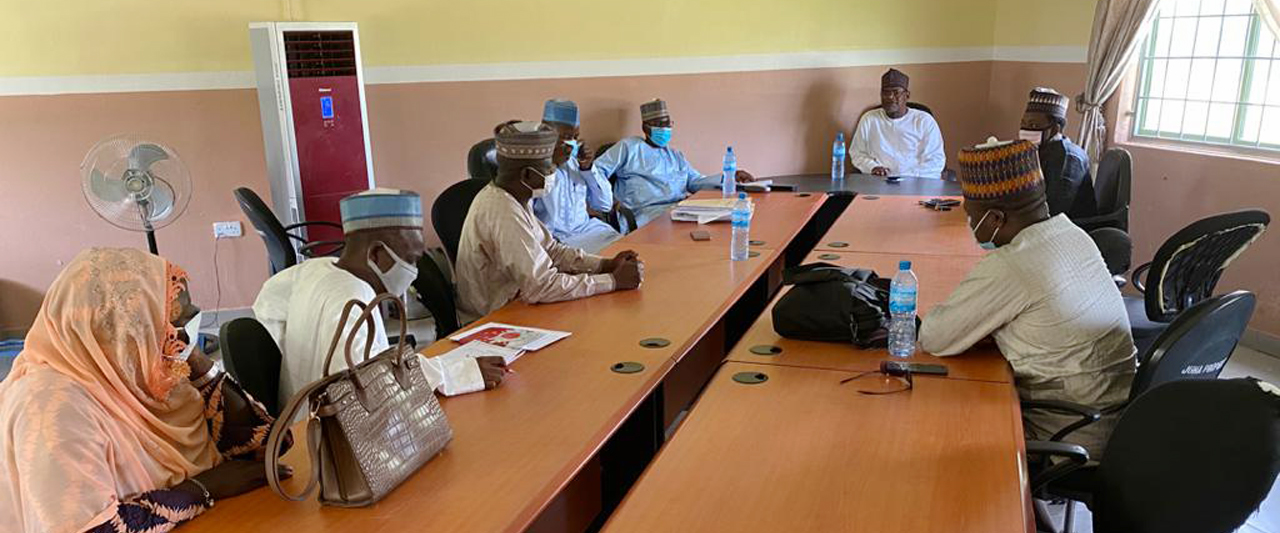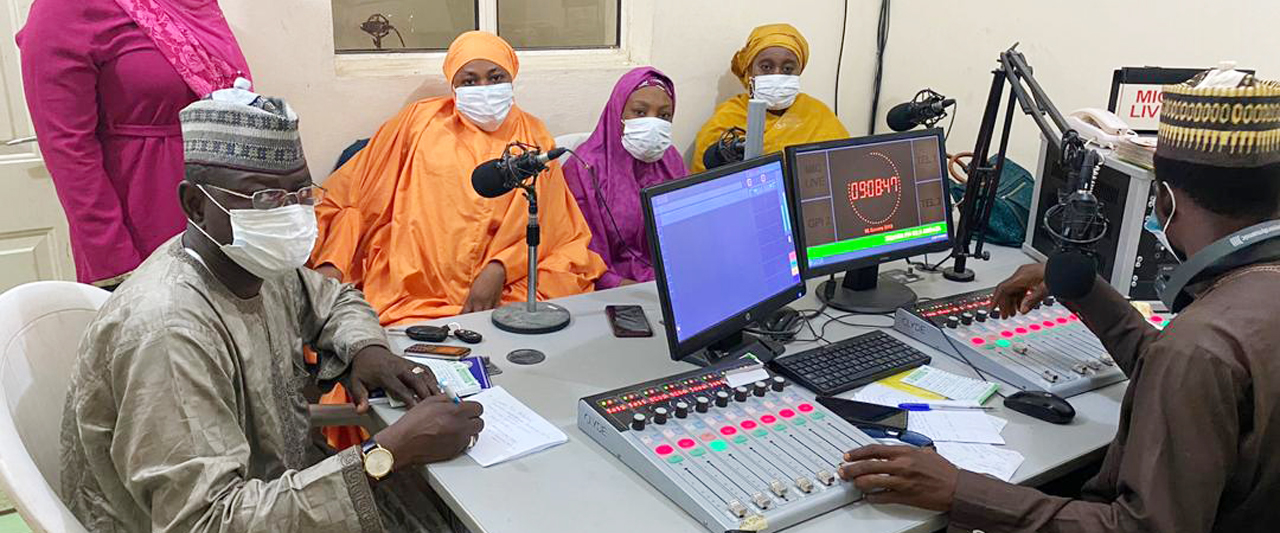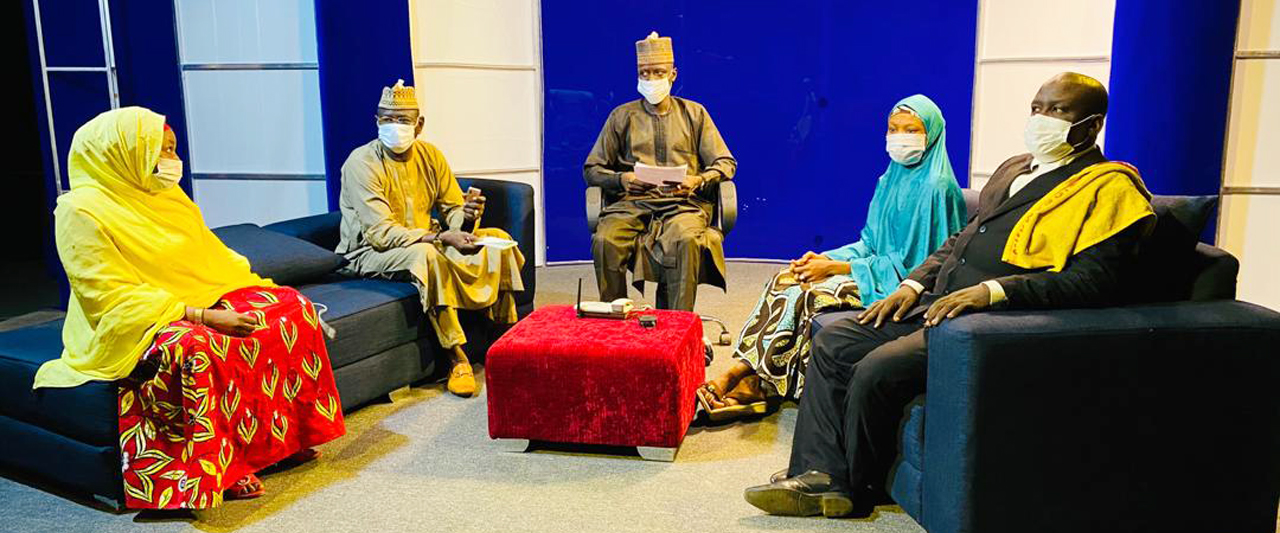Amid “two pandemics”— a rising number of COVID-19 infections and a spike in cases of sexual violence against women and girls—a coalition of partners led by Ipas Nigeria is making progress in advancing state-level legislation to combat gender-based violence.
A federal law, the Violence Against Persons Prohibition (VAPP) Act, was enacted in 2015 in response to the longstanding problem of gender-based violence in Nigeria, where it is estimated that one in three girls and women will experience sexual abuse by the age of 25. Yet only 16 of 36 states have thus far adopted legislation needed to implement the VAPP Act at the state level.
“State-level action is critical,” says Lucky Palmer, director of Ipas Nigeria, “State laws will provide the legal framework needed to both punish the perpetrators of sexual and gender-based violence and to provide survivors with comprehensive sexual and reproductive services and care if needed.”
In Jigawa State, in particular, there is promising progress toward getting the state legislation approved, especially now that the bill has gained the support of the governor. This follows months of advocacy work by the Ipas-led coalition, including meetings with leaders and members of the Jigawa State Assembly, the Jigawa Attorney General and other key stakeholders.

Leaders of the Jigawa State Assembly in Nigeria meet with representatives of Ipas-led coalition to discuss the need for state-level protections for survivors of gender-based violence.
This effort by Ipas and partners comes against the backdrop of a larger social movement in Nigeria that is spotlighting the issue of gender-based violence and demanding action to eliminate it. In recent months, two cases in particular—the arrest of 11 men for the rape of a 12-year-old girl and the brutal rape and murder of a 22-year-old university student—have fueled a widespread call for action and sparked the Twitter hashtag #WeAreTired.
“Gender–based violence has long been a major problem in Nigeria,” says Palmer. “In a lot of cases, it involves young girls who are raped by people they trust. If they become pregnant, it fills them with fear and shame, and two or three months may go by without them telling anyone. And in some cases, they might try to use an unsafe method to end the pregnancy.”
By providing comprehensive medical assistance if needed, the state-level VAPP bill in Jigawa and similar bills proposed in other states will broaden access to sexual and reproductive health services for survivors, says Palmer. “These bills will help to ensure that victims of sexual and gender-based violence get the quality health care they need—and that their right to such care is protected by law.”
Enactment of state-level bills will also help shift the culture in Nigeria away from “blaming the victim,” says Doris Ikpeze, Ipas Nigeria policy advisor. “Because of the stigma associated with rape, women and girls often do not trust the police, the courts— or even health providers—to provide them help after they have been assaulted, and so do not report the crime.” For that reason, Ipas Nigeria has been sponsoring radio programs in Jigawa State on sexual and gender-based violence that includes information on how to report cases. Between April and June, 18 cases were reported to the Sexual Assault Referral Centre there. Most were reported in June, following one of the radio programs.

Several members of an Ipas-led coalition urging protections for survivors of gender-based violence in Jigawa State, Nigeria, gather with a nurse and a representative of the state’s Sexual Assault Referral Center for a radio program to discuss the issue.

Advocates seeking legislation to protect survivors of gender-based violence in Jigawa State, Nigeria, join medical and legal practioneers and a representative of the state’s Sexual Assault Referral Center to discuss the issue on a televised program.
Fighting to end gender-based violence and working on expanding access to sexual and reproductive health services for survivors is not new for Ipas Nigeria. “We worked hard for passage of the federal VAPP Act in 2015,” notes Palmer. Ipas Nigeria subsequently provided technical assistance to the Nigerian Ministry of Health for the development of national standards and guidelines for the medical management of survivors of gender–based violence. And, Palmer says, “We stand ready to offer technical assistance to develop medical management protocols at the state level as well. Together, the state bills and protocols for implementation will increase access to vital sexual and reproductive health services. It is something that survivors of sexual violence desperately need, especially as we face a rising tide of COVID-19 and sexual violence.”
For more information, contact [email protected]


